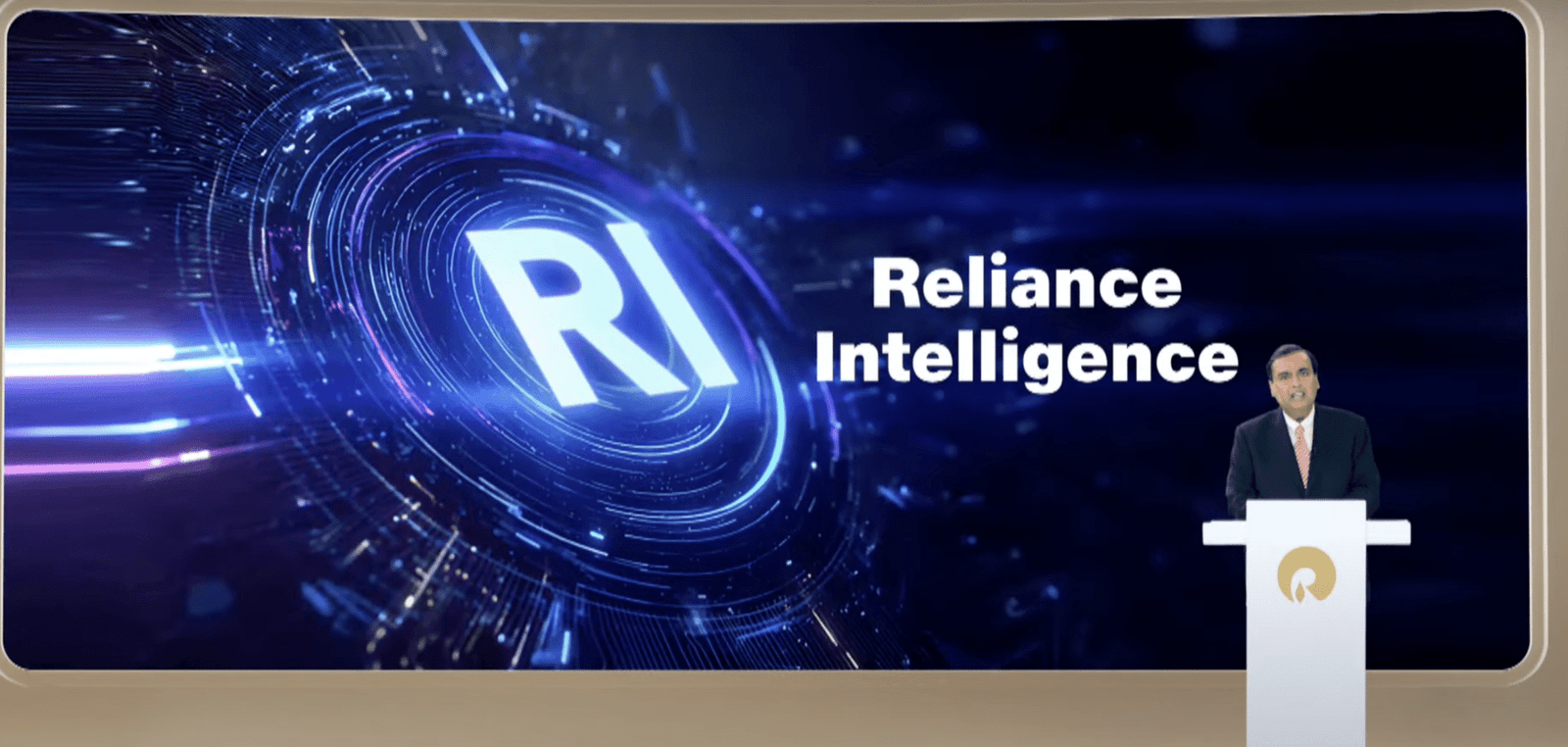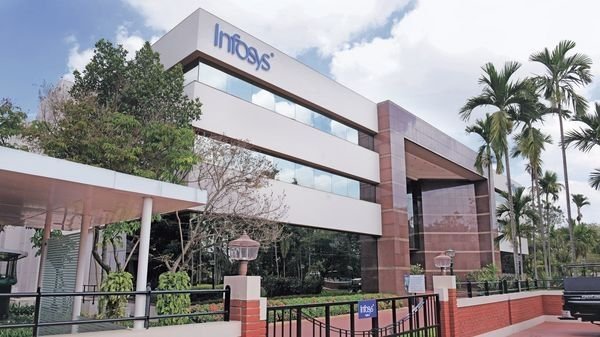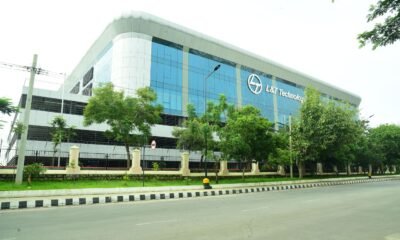Jobs & Careers
IT Legacy Roles Stagnate as Digital Economy Grows, Reveals TeamLease Digital Report

Even as India’s digital economy surges ahead, traditional IT roles such as support and legacy system maintenance are showing no growth in salaries, the latest Digital Skills and Salary Primer Report for FY2025-26 shared by TeamLease Digital has revealed.
The report finds that salaries for IT support are nearly flat, rising only from ₹10.5 lakh per annum (LPA) to ₹11 LPA by FY2027. Legacy systems maintenance is completely stagnant at ₹12 LPA. This trend signals a clear shift towards cloud-native platforms, AI-driven roles and outsourced service models.
In contrast, high-demand areas such as GenAI, cloud and cybersecurity are driving record salaries. Senior professionals in GenAI engineering and MLOps can now command ₹58–60 LPA, while cybersecurity experts are expected to see pay rise from ₹28 to ₹33.5 LPA by FY2027.
“India’s digital economy is at a pivotal juncture, with AI, cloud and cybersecurity redefining the future of work,” Neeti Sharma, CEO of TeamLease Digital, said. “GCCs alone now contribute 22–25% of net new white-collar tech jobs and account for 30–35% of AI hiring nationwide. Generative AI engineering and MLOps professionals are commanding premium salaries of ₹58–60 LPA for senior talent.”
The report highlights that global capability centres (GCCs) will be a major driver of this demand, adding over 1.2 million new tech jobs by 2027. At the same time, India’s overall digital economy is projected to grow twice as fast as the rest of the economy, contributing nearly one-fifth of GDP by 2030.
However, the widening talent gap remains a concern. For every 10 open GenAI roles, only one qualified engineer is available. Without large-scale upskilling, enterprises may struggle to meet their digital ambitions.
While AI, cloud, and cybersecurity roles are setting new benchmarks, the stagnation of legacy IT functions underlines the changing priorities of India’s digital economy. Companies are clearly investing in the future and leaving behind roles that no longer add strategic value.
The post IT Legacy Roles Stagnate as Digital Economy Grows, Reveals TeamLease Digital Report appeared first on Analytics India Magazine.
Jobs & Careers
‘Reliance Intelligence’ is Here, In Partnership with Google and Meta

Reliance Industries chairman Mukesh Ambani has announced the launch of Reliance Intelligence, a new wholly owned subsidiary focused on artificial intelligence, marking what he described as the company’s “next transformation into a deep-tech enterprise.”
Addressing shareholders, Ambani said Reliance Intelligence had been conceived with four core missions—building gigawatt-scale AI-ready data centres powered by green energy, forging global partnerships to strengthen India’s AI ecosystem, delivering AI services for consumers and SMEs in critical sectors such as education, healthcare, and agriculture, and creating a home for world-class AI talent.
Work has already begun on gigawatt-scale AI data centres in Jamnagar, Ambani said, adding that they would be rolled out in phases in line with India’s growing needs.
These facilities, powered by Reliance’s new energy ecosystem, will be purpose-built for AI training and inference at a national scale.
Ambani also announced a “deeper, holistic partnership” with Google, aimed at accelerating AI adoption across Reliance businesses.
“We are marrying Reliance’s proven capability to build world-class assets and execute at India scale with Google’s leading cloud and AI technologies,” Ambani said.
Google CEO Sundar Pichai, in a recorded message, said the two companies would set up a new cloud region in Jamnagar dedicated to Reliance.
“It will bring world-class AI and compute from Google Cloud, powered by clean energy from Reliance and connected by Jio’s advanced network,” Pichai said.
He added that Google Cloud would remain Reliance’s largest public cloud partner, supporting mission-critical workloads and co-developing advanced AI initiatives.
Ambani further unveiled a new AI-focused joint venture with Meta.
He said the venture would combine Reliance’s domain expertise across industries with Meta’s open-source AI models and tools to deliver “sovereign, enterprise-ready AI for India.”
Meta founder and CEO Mark Zuckerberg, in his remarks, said the partnership is aimed to bring open-source AI to Indian businesses at scale.
“With Reliance’s reach and scale, we can bring this to every corner of India. This venture will become a model for how AI, and one day superintelligence, can be delivered,” Zuckerberg said.
Ambani also highlighted Reliance’s investments in AI-powered robotics, particularly humanoid robotics, which he said could transform manufacturing, supply chains and healthcare.
“Intelligent automation will create new industries, new jobs and new opportunities for India’s youth,” he told shareholders.
Calling AI an opportunity “as large, if not larger” than Reliance’s digital services push a decade ago, Ambani said Reliance Intelligence would work to deliver “AI everywhere and for every Indian.”
“We are building for the next decade with confidence and ambition,” he said, underscoring that the company’s partnerships, green infrastructure and India-first governance approach would be central to this strategy.
The post ‘Reliance Intelligence’ is Here, In Partnership with Google and Meta appeared first on Analytics India Magazine.
Jobs & Careers
Cognizant, Workfabric AI to Train 1,000 Context Engineers

Cognizant has announced that it would deploy 1,000 context engineers over the next year to industrialise agentic AI across enterprises.
According to an official release, the company claimed that the move marks a “pivotal investment” in the emerging discipline of context engineering.
As part of this initiative, Cognizant said it is partnering with Workfabric AI, the company building the context engine for enterprise AI.
Cognizant’s context engineers will be powered by Workfabric AI’s ContextFabric platform, the statement said, adding that the platform transforms the organisational DNA of enterprises, how their teams work, including their workflows, data, rules, and processes, into actionable context for AI agents.Context engineering is essential to enabling AI a
Jobs & Careers
Mastercard, Infosys Join Hands to Enhance Cross-Border Payments

Infosys has announced a partnership with Mastercard to make cross-border payments faster and easier for banks and financial institutions.
The collaboration will give institutions quick access to Mastercard Move, the company’s suite of money transfer services that works across 200 countries and over 150 currencies, reaching more than 95% of the world’s banked population.
Sajit Vijayakumar, CEO of Infosys Finacle, said, “At Infosys Finacle, we are committed to inspiring better banking by helping customers save, pay, borrow and invest better. This engagement with Mastercard Move brings together the agility of our composable banking platform with Mastercard’s unmatched global money movement capabilities—empowering banks to deliver fast and secure cross-border experiences for every customer segment.”
Integration will be powered by Infosys Finacle, helping banks connect with Mastercard’s system in less time and with fewer resources than traditional methods.
Pratik Khowala, EVP and global head of transfer solutions at Mastercard, said, “Through Mastercard Move’s cutting-edge solutions, we empower individuals and organisations to move money quickly and securely across borders.”
The tie-up also comes at a time when global remittances are on the rise. Meanwhile, Anouska Ladds, executive VP of commercial and new payment flows, Asia Pacific at Mastercard, noted, “Global remittances continue to grow, driven by migration, digitalisation and economic development, especially across Asia, which accounted for nearly half of global inflows in 2024.”
He further said that to meet this demand, Mastercard invests in smart money movement solutions within Mastercard Move while expanding its network of collaborators, such as Infosys, to bring the benefits to a more diverse set of users.
Infosys said the partnership will help banks meet growing consumer demand for faster and safer payments.
Dennis Gada, EVP and global head of banking and financial services at Infosys, said, “Financial institutions are prioritising advancements in digital payment systems. Consumers gravitate toward institutions that offer fast, secure and seamless transaction experiences. Our collaboration with Mastercard to enable near real-time, cross-border payments is designed to significantly improve the financial experiences of everyday customers.”
The post Mastercard, Infosys Join Hands to Enhance Cross-Border Payments appeared first on Analytics India Magazine.
-
Tools & Platforms3 weeks ago
Building Trust in Military AI Starts with Opening the Black Box – War on the Rocks
-

 Ethics & Policy1 month ago
Ethics & Policy1 month agoSDAIA Supports Saudi Arabia’s Leadership in Shaping Global AI Ethics, Policy, and Research – وكالة الأنباء السعودية
-

 Events & Conferences3 months ago
Events & Conferences3 months agoJourney to 1000 models: Scaling Instagram’s recommendation system
-

 Jobs & Careers2 months ago
Jobs & Careers2 months agoMumbai-based Perplexity Alternative Has 60k+ Users Without Funding
-

 Funding & Business2 months ago
Funding & Business2 months agoKayak and Expedia race to build AI travel agents that turn social posts into itineraries
-

 Education2 months ago
Education2 months agoVEX Robotics launches AI-powered classroom robotics system
-

 Podcasts & Talks2 months ago
Podcasts & Talks2 months agoHappy 4th of July! 🎆 Made with Veo 3 in Gemini
-

 Podcasts & Talks2 months ago
Podcasts & Talks2 months agoOpenAI 🤝 @teamganassi
-

 Mergers & Acquisitions2 months ago
Mergers & Acquisitions2 months agoDonald Trump suggests US government review subsidies to Elon Musk’s companies
-

 Jobs & Careers2 months ago
Jobs & Careers2 months agoAstrophel Aerospace Raises ₹6.84 Crore to Build Reusable Launch Vehicle









